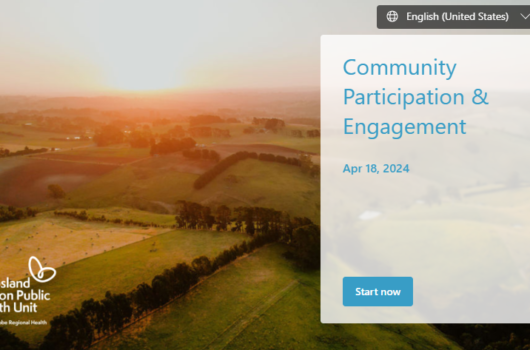Mosquito and food safety for summer

Summer may be a time of getting together and enjoying Gippsland’s many areas of natural beauty, but it is also a time when people are more exposed to health risks resulting from increased temperatures.
“Our data shows us that October, November and January are the months with the highest notifications of gastrointestinal conditions,” Gippsland Region Public Health Unit Operations Director Annelies Titulaer said.
“Similarly, the data shows us that November is really the ‘unofficial start’ of the mosquito borne virus season with cases picking up now and increasing until they fall away in the cooler climate of May and June.”
The most notable gastrointestinal conditions include:
- Salmonella, an infection spread by eating undercooked foods made from infected animals such as eggs, meat and poultry, and
- Campylobacterosis, one of the most common gastrointestinal infections in Australia. This is mostly spread by eating or drinking contaminated food, mainly poultry, water or unpasteurised milk.
“Remembering that washing your hands before and after handling food or eating is one of the best things we can all do to keep ourselves and our families healthy this summer. Along with the 4 Cs when cooking – Clean, Cook, Cover and Chill,” Annelies said.
The most common mosquito borne viruses in Gippsland are Ross River Virus and Barmah Forest Virus with almost 300 cases over the last five years.
“Three hundred cases may not sound like a lot, but being diagnosed with Ross River Virus or Barmah Forest Virus can be lifechanging for some people. It can lead to long periods of discomfort and being very unwell, so it is worth avoiding,” Annelies said.
“Gippsland’s geography means we have some areas that are higher risk when it comes to being diagnosed with Ross River Virus with almost 50 per cent of cases over the last five years occurring in the East Gippsland Shire.”
The region’s lakes, wetlands, rivers and coasts present ideal breeding conditions for mosquitoes and are all likely to have higher numbers of mosquito species that can pass on a virus during the warmer months.
While the general public may be more aware of conditions such as Ross River Virus and Barmah Forest Virus, there are emerging mosquito borne threats such as Japanese Encephalitis.
“While not common, Japanese Encephalitis is a growing threat as our climate changes. The way of lowering your risk of developing all of these conditions is to take precautions to avoid being bitten by a mosquito in the first place.
“Cover up exposed arms and legs, use an insect repellent that contains DEET, get rid of any standing water around campsites, BBQs or your home. Being mindful of peak mosquito activity times, typically dawn and dusk, and taking extra precautions during these times can further reduce your risk,” Annelies said.
Further information about health risks over summer can be found at the Better Health Channel.
To stay up to date with the latest public health news, visit the Gippsland Region Public Health Unit’s web page https://lrh.com.au/gippsland-region-public-health-unit/ or the Latrobe Regional Health Facebook page.






